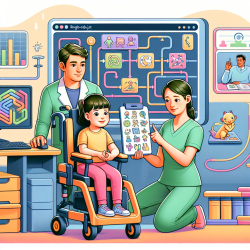The 2019 Plant Science Research Network workshop titled "Inclusivity in the Plant Sciences" offers invaluable insights into removing systemic barriers to equity, diversity, and inclusion (EDI). Although this research was conducted within the plant science community, its recommendations are highly applicable to other fields, including online therapy and special education. This blog aims to guide practitioners in online therapy to improve their skills by implementing the outcomes of this research or encouraging them to delve further into the study.
Understanding Systemic Barriers
Systemic barriers are entrenched obstacles within institutions that prevent marginalized groups from accessing equal opportunities. In the context of online therapy, these barriers could manifest as biases in hiring practices, lack of culturally competent training, or inadequate support for therapists from diverse backgrounds. The 2019 workshop identified several strategies to tackle these barriers, which can be adapted for online therapy services.
Key Strategies for Promoting EDI
The workshop highlighted several strategies to promote EDI effectively:
- Inclusive Hiring Practices: Ensure that hiring processes are free from biases and actively seek to recruit therapists from diverse backgrounds. This can be achieved through blind recruitment processes and targeted outreach to underrepresented communities.
- Culturally Competent Training: Provide ongoing training for therapists to develop cultural competence. This includes understanding the cultural backgrounds of clients and being aware of potential biases in therapeutic practices.
- Mentorship and Sponsorship: Establish mentorship programs that pair experienced therapists with newcomers from marginalized groups. Sponsorship goes a step further by actively advocating for these individuals in career advancement opportunities.
- Support Networks: Create support networks for therapists from diverse backgrounds to share experiences, challenges, and strategies for overcoming barriers. This can be facilitated through online forums, regular meetings, and professional development workshops.
- Inclusive Policies: Develop and implement policies that promote inclusivity at all levels of the organization. This includes anti-discrimination policies, flexible working arrangements, and equitable pay structures.
Implementing EDI in Online Therapy
For practitioners in online therapy, implementing these strategies can lead to a more inclusive and supportive environment for both therapists and clients. Here are some practical steps to get started:
- Review and Revise Hiring Practices: Assess your current hiring practices for biases and implement changes to ensure inclusivity. This might include using diverse hiring panels and standardized interview questions.
- Invest in Training: Allocate resources for ongoing cultural competence training for all therapists. This could be in the form of workshops, online courses, or guest speakers from diverse backgrounds.
- Establish Mentorship Programs: Pair new therapists with experienced mentors who can provide guidance and support. Consider formalizing this process with clear goals and regular check-ins.
- Build Support Networks: Create spaces where therapists can connect and share their experiences. This could be an online forum, a monthly virtual meetup, or a dedicated Slack channel.
- Develop Inclusive Policies: Ensure that your organization’s policies reflect a commitment to EDI. This includes having clear procedures for reporting discrimination and offering flexible work arrangements to accommodate diverse needs.
Encouraging Further Research
While implementing these strategies is a significant step forward, it is also crucial to encourage ongoing research into EDI within online therapy. Practitioners should stay informed about the latest studies and be open to adapting their practices based on new findings. Collaboration with academic institutions and participation in professional conferences can also provide valuable insights and opportunities for continuous improvement.
Conclusion
The 2019 Plant Science Research Network workshop offers a comprehensive framework for addressing systemic barriers to EDI. By adopting these strategies, practitioners in online therapy can create a more inclusive and supportive environment for both therapists and clients. Continuous learning and adaptation are key to sustaining these efforts and ensuring that everyone has equal access to quality therapy services.
To read the original research paper, please follow this link: Removing systemic barriers to equity, diversity, and inclusion: Report of the 2019 Plant Science Research Network workshop “Inclusivity in the Plant Sciences”










